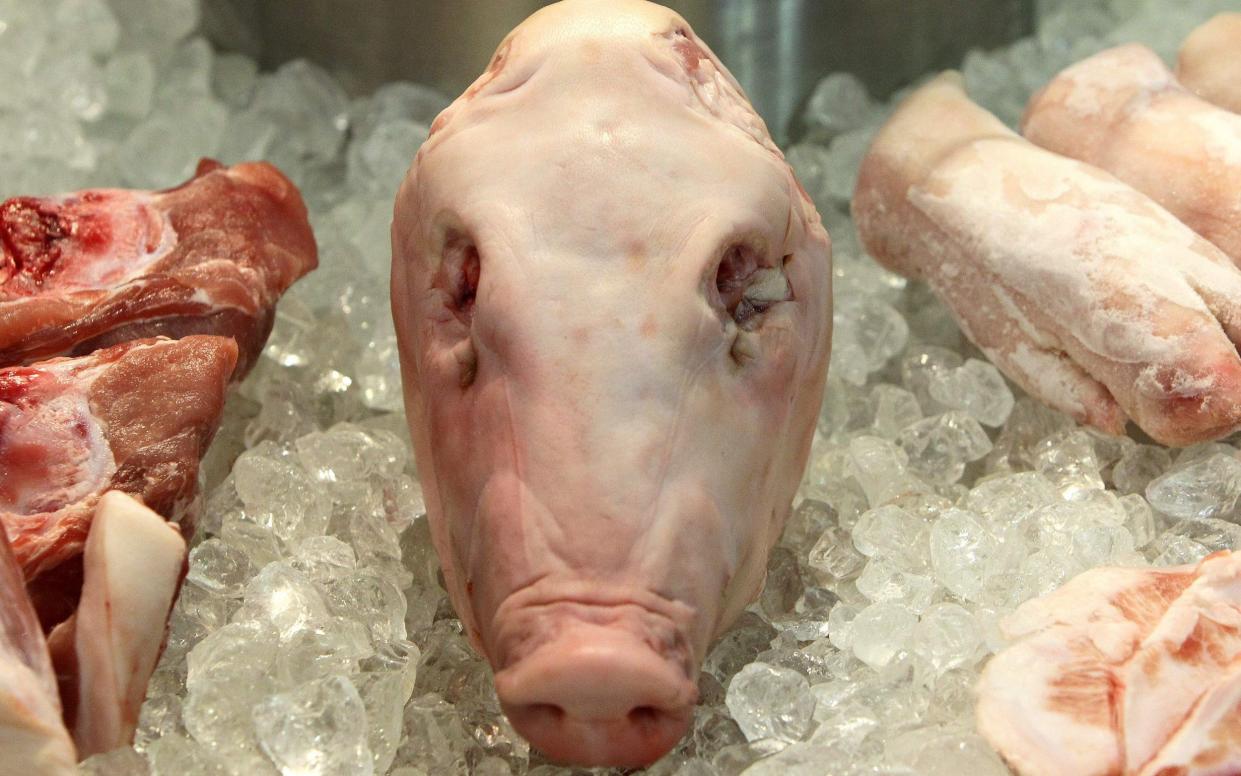My advice for faddy Gen Z? Try eating trotters and goat’s spleen

- Oops!Something went wrong.Please try again later.
- Oops!Something went wrong.Please try again later.
“Pig’s thinkers, Davey?” cries Nancy Mitford’s ferocious fictional paterfamilias, Uncle Matthew, lifting the lid of a breakfast chafing dish. To which Davey, as fussy about food as any Gen Z vegan, replies, “Oh, yes please, Matthew, if you mean brains.”
It is a while since brains – or indeed most kinds of offal – have featured on the menus of fashionable restaurants on this side of the Channel. The entry on offal in the Oxford Companion to Food notes a “squeamish attitude” in the English-speaking world to its consumption – particularly marked in the US, where the distinguished veterinary epidemiologist and gourmet, Calvin W Schwabe, published a book on offal and other alternative foodstuffs titled Unmentionable Cuisine (1979).
In Britain, the Oxford Companion notes that a once “robust” attitude to offal declined in the last half of the 20th century. In the 1990s the chef Fergus Henderson was a pioneering champion of nose-to-tail eating at his restaurant, St John. But now an unexpected alliance of social media and the cost of living crisis has precipitated offal to the forefront of culinary fashion.
Across the UK, restaurants have begun offering dishes with alarmingly recognisable ingredients: roast pig’s head; stuffed duck neck with head still on; and at the “beak-to-feet” Fowl restaurant in Haymarket, a collaboration with the Michelin-starred chef, Pierre Koffmann, that produced Le Grand Coq pie, with a jaded-looking hen’s head protruding from a pastry crust.
The chefs embracing these creations claim that by bringing their customers face-to-face with their dinner, they are educating them in sustainable food production. Which, for a generation raised on a diet of anonymous prime cuts might be no bad thing. But it ignores the less picturesque – though equally delicious, and economical – range of offal that is now extinct on supermarket shelves, and rare enough to need special ordering even at independent butchers.
Not all offal is worth the effort: Patience Gray’s Honey From a Weed mentions with feeling the addition of garlic vinegar as an “antidote” to a dish of grilled goat’s spleen. But offal exists in many less formidable forms, and it is high time to reconsider a return of the less Instagrammable delicacies of yesteryear to the domestic dinner table. Liver, kidneys – even Uncle Matthew’s pigs’ thinkers – are long overdue a popular revival.
Bittersweet Symphony
Last week at the Symphony Hall Birmingham, the tenor Ian Bostridge stopped singing, midway through his performance of Benjamin Britten’s Les Illuminations, to ask that audience members stop filming and taking pictures on their phones.
“The lights are shining directly in my eyes – it’s very distracting,” he said, apparently unaware of the hall’s policy of encouraging audiences to take photographs and video clips of performances to share online.
Earlier this year, the bankrupt Birmingham city council announced arts funding cuts of 100 per cent by next year. In the circumstances, it is perhaps understandable that the Hall should seek to raise its profile by whatever means possible.
But by recording a performance on their phones, a minority of audience members destroys for everyone the intimate alliance of collective concentration that is the essence of live performance. Unchecked, it will end by killing the very thing it claims to love.

